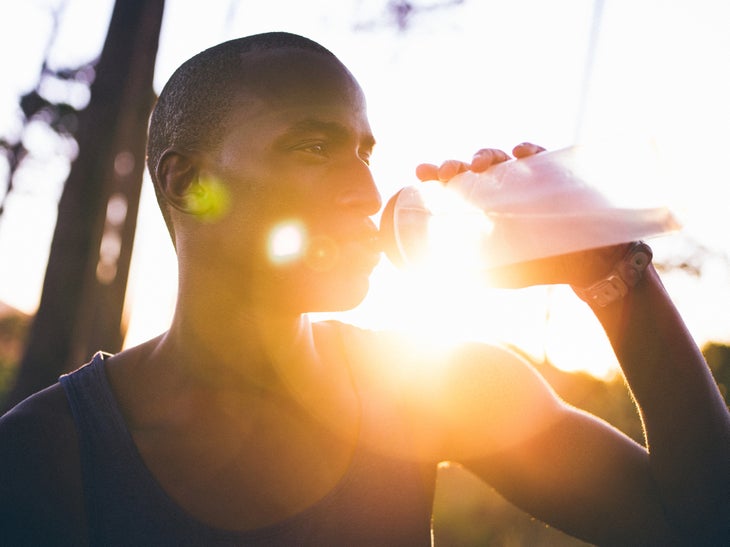Products You May Like
Get access to everything we publish when you
sign up for Outside+.
Nausea. Cramping. Gas. Bloating. Diarrhea. Runners are often left guessing the causes of their stomach woes, which can lead down a rabbit hole of nutrient deficiencies, under eating and underperforming. Knowing and weighing out the possibilities can help pinpoint the cause without making things more complicated. Here are some frequent culprits of stomach problems on trail runs.
Here’s why your stomach hurts on runs.

#1) Eating too close to runs
When we run, the blood is diverted away from our digestive system, making it more difficult to digest food that is in our system. What and when you eat before a run can contribute to an upset stomach. Consider moving out the food you consume one to three hours before your run and keeping the fat and fiber content low and prioritizing simple carbohydrates.
RELATED: 5 Gut Training Tips For People With Crappy Guts
#2) Supplements
Do you take a magnesium supplement for those leg cramps at night? Maybe you got a new multivitamin to help fill in some nutrition gaps in your diet? Supplements can add unknowns to the nutrition equation, and have unintended consequences when taken in too large of amounts or in the wrong form. The supplement industry is not regulated well by the FDA, making them prone to having added ingredients that are not listed on the label. Always use caution and research your supplements before taking anything new.
#3) Too much fiber
Yes, there is such a thing as too much! While the body can adapt, sometimes, eating double or triple the amount of daily fiber your body needs can cause significant gas, bloating, and diarrhea. This one is particularly important to pay attention to if you have been transitioning to a more plant-based diet or purposefully trying to increase your daily fiber intake. Daily recommendations for fiber intake for females is 28 grams and men is 38 grams.
RELATED: Hacks To Keep Your GI Tract On Track

#4) Hydration Status
Under-hydrating and over-caffeinating can both cause stomach discomfort or disaster. What you hydrate with and how much you hydrate can make a difference in your gut symptoms. Too little fluid consumption can cause irregular bowel function, while things like too much caffeine can overstimulate the gut. Finding the balance that is right for you is important for managing GI symptoms. To start, consume a minimum of half your body weight in ounces of fluids plus 16-20 oz for every hour of exercise you do every day and if you are sensitive, limit the caffeine intake before running.
#5) Food Sensitivity
Too often, this is where runners turn first when trying to figure out their tummy troubles, and end up unnecessarily removing benign foods and important nutrients from their diet. First goes the gluten, then the dairy, and before you know it, you have removed a whole slew of foods. Many won’t be able to pinpoint their dietary issue and can end up having trouble fueling sufficiently to support their training. While food allergies and sensitivities can be a real cause of stomach issues, they should be looked at as only one possibility and not the cure-all. If you want to try and pinpoint which food or foods are causing issues, an organized elimination diet (supervised by a professional to ensure proper fuel and nutrient levels) that removes possible culprits one at a time is the way to go!
RELATED: 5 Nutrition Truths For Trail Runners
Do you have a question for our RDN? Send your trail-running-nutrition quandaries to kylee@flynutrition.org.
Kylee Van Horn is a licensed Sports Registered Dietitian and competitive trail runner.
